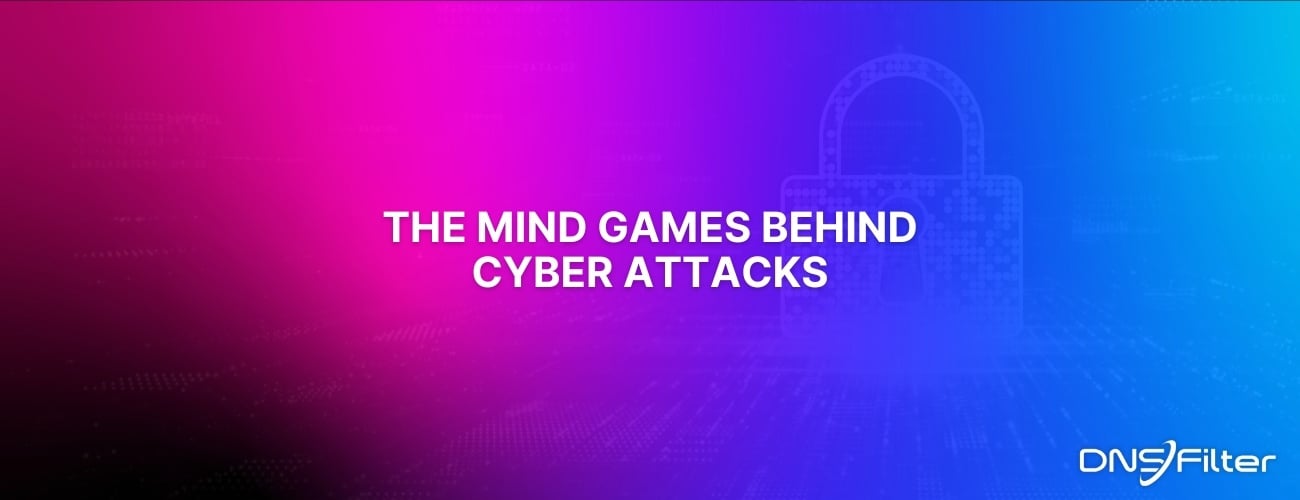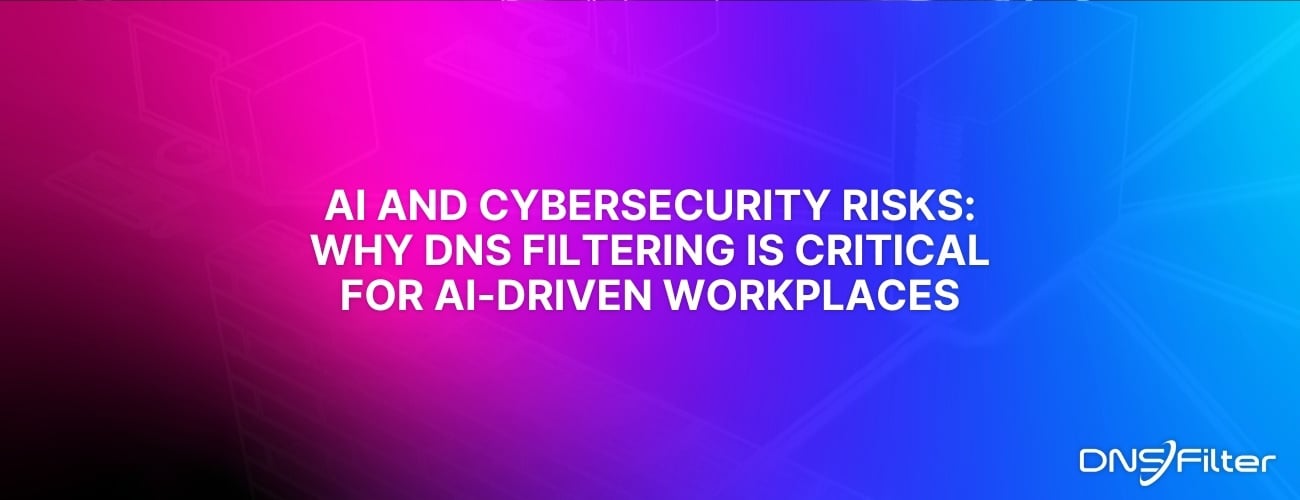Share this
What is DNS Filtering? And How Can It Protect Me?
by Serena Raymond on Apr 13, 2021 12:00:00 AM
To absolutely no one’s surprise, cybersecurity threats continue to grow in number, complexity, and damage. Malware. Botnets. DDoS attacks. Phishing. Ransomware. Trojans. Worms. These terms sound ominous because they are—any of these types of attacks can result in major monetary losses for companies. As is the case with so many things, sometimes the best defense is simple—yet powerful. Something that leverages one of the very building blocks of the world wide web: DNS filtering.
What is DNS filtering?
DNS filtering is defensive software that prevents cybersecurity threats by following simple logic: if a website has something potentially dangerous within it, DNS filtering blocks a user from visiting it in the first place. It’s a zero-trust solution that leaves nothing to chance.
How does DNS filtering work?
We’ve covered some of the basics of DNS filtering in a past blog, so if you’re looking for a more detailed history, check out this post.
As a refresher, DNS stands for Domain Name System. This system has been around, in some form or another, since the 1970s. DNS is a decentralized system that maps names to their respective IP addresses, thereby ensuring that there are no duplicate domain names and that internet users have a more user-friendly experience.
Think of DNS as the Yellow Pages for the internet: if you need to reach out to John Jones, for example, you look him up in the phone book using his name, but it’s his phone number that actually connects you with him. In the same way, if you want to visit the New York Times website, you look up the domain name “nytimes.com” but it’s the string of numbers (the IP address) associated with this domain name that actually connects you to the site.
If DNS is the internet’s phone book, DNS filtering is akin to blocking unwanted calls using caller ID.
What are the benefits of DNS filtering?
DNS filtering technology is more than just a method to filter web content. It’s a shield that cybersecurity professionals can leverage to bolster one’s cybersecurity efforts.
Secure your company with DNS filtering
When you enter a domain name into your browser, DNS filtering categorizes the intended web page before it loads. Categories include personal sites, entertainment, news and media, social networking, and education (to name a few). DNS filtering also categorizes content by threat if that site is associated with any known (or unknown) threats.
Cybercrime is an unfortunate risk in today’s digital climate, but with the right tools, organizations can be properly prepared. Applying DNS filtering not only blocks unwanted web content, but you can identify and restrict access to threats. These can include:
- Purposefully deceptive sites that house malware—these sites are often brand new or recently taken over by a hacker
- Malicious ad campaigns (known as “malvertising”)
- Ransomware campaigns—a type of malware that holds computers for ransom and often targets vulnerable entities such as healthcare providers
- Phishing sites, usually linked to from spam emails, text messages, or copycat sites (often called “typosquatting”)
Many organizations utilize DNS filtering in order to prevent their users from accessing content that may lead to harmful sites like the ones listed above. Not only is the web address checked against a database, but it can be scanned to see if there are any new threats since the last time this site was accessed through a DNS resolver.
Increase productivity and block inappropriate sites
In the age of working from home, employee productivity is a major concern. DNS filtering technology, such as DNSFilter, is used by companies to prevent their employees from visiting, say, Facebook or Instagram during work hours. Schools might apply DNS filtering to ensure that students aren’t using their devices to view adult content. There are immeasurable ways in which a tool like DNSFilter can be utilized in order to control web content.
But as I stated above, DNS filtering isn’t just content filtering. It’s protective DNS and an essential part of your multi-layered, zero-trust IT infrastructure.
A Zero-Trust Solution
DNS filtering protects at a level that requires no action from the user. Whereas some security threats can only be mitigated by entrusting the user with instructions and training, DNS filtering is a solution that eliminates reliance on the individual. Where there’s trust, there’s opportunity for exploitation. To trust is to be vulnerable, and in the world of cybersecurity, vulnerabilities can be dangerous—and costly. A DNS filtering system will always block users from malicious content. Botnet, cryptomining, malware, phishing, ransomware—you name it, you’re protected.
If your organization is still relying on your users to assess and interpret their own online behavior (and risks), it’s high time to tighten your cybersecurity measures. In choosing to deploy DNS filtering, you not only have greater control over which content is available to your users, but you also strengthen your overall IT security.
Ready to see how DNSFilter's DNS filtering service can improve your overall security strategy?

Share this
 Artificial Intelligence in Cybersecurity
Artificial Intelligence in Cybersecurity
The term “artificial intelligence (AI)” was first coined in 1956. While progress stalled for many years, we can thank IBM for sparking real interest in AI as viable technology: First in 1997 when the computer Deep Blue defeated a chess champion and again in 2011 when Watson won Jeopardy!
 The Mind Games Behind Cyber Attacks
The Mind Games Behind Cyber Attacks
Hackers have long understood that the most sophisticated firewall is no match for a well-placed psychological trick. While many focus on the technical prowess of cybercriminals, the real magic often lies in their ability to manipulate human behavior. By exploiting our natural tendencies and cognitive biases, hackers can slip past even the most robust security systems. It's not just about cracking codes; it's about cracking the human psyche.
 AI and Cybersecurity Risks: Why DNS Filtering is Critical for AI-Driven Workplaces
AI and Cybersecurity Risks: Why DNS Filtering is Critical for AI-Driven Workplaces
Artificial intelligence is transforming business operations, automating everything from customer service to data analysis. But with these advancements come new security challenges. AI-driven cyber threats are becoming more sophisticated, enabling attackers to automate phishing campaigns, generate malware, and exfiltrate sensitive data at scale. Without proper safeguards, AI tools can unintentionally leak corporate secrets or connect to malicious ...


